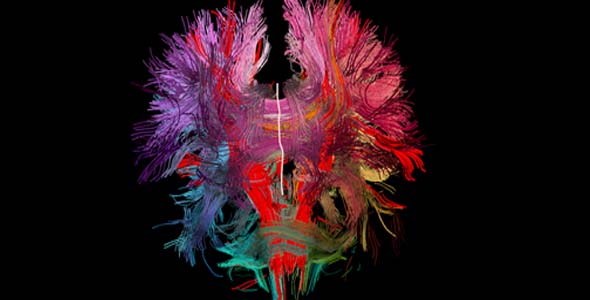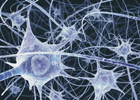Imagine not dying….ever! Instead all of your thoughts get uploaded to a computer brain in the body of a robot and you continue to experience consciousness through the machine’s memory circuits. Well that’s a story that caught my eye this morning as I was reading through the email in my inbox.
Neuroscientist Kenneth Hayworth, who recently left Harvard University to join the Janelia Farm Research Campus of the Howard Hughes Medical Institute, Ashburn, Virginia, believes we will be able to mind upload and be revived after we die, transferring our biological brains into a computer brain. He predicts this will happen by 2110. Hayworth is a former employee of NASA’s Jet Propulsion Laboratory, a futurist whose expertise is in the field of connectomics.
Connectomics?????? Not heard of it before? This newest branch of neuroscience focuses on mapping the brain’s complete neural circuitry through detailed imaging. Hayworth is a participant in the Human Connectome Project, a study involving a number of universities looking at consciousness, memory and emotion. The hope is to find cures for autism, schizophrenia, Alzheimer’s and other brain diseases.
Neuroscientists studying connectomics believe that who we are and the wiring of our brains are one in the same. Whereas our genes are fixed, our connectomes evolve as we experience life. That means we constantly are getting rewired and if we could capture ourselves at a particular point in our lives we could then upload the sum of who we were to preserve everything up to that moment and then continue from there within the circuitry of an intelligent machine. To do this, however, we have to end our biological lives.
Not all neuroscientists buy into connectomics. In fact very few at present. But the Human Connectome Project has received $40 million in funding and Hayworth and like-minded colleagues are pushing forward with their research. One of those is Sebastian Seung, at Massachusetts Institute of Technology. His research involves imaging the smallest segments of the human brain to reconstruct individual neurons and decode the information each contains. The science is daunting. A tiny slice of human brain tissue, no bigger than a thimble, contains 50 million neurons. Those 50 million have almost a trillion synapses. To map an entire brain means getting a detailed picture of one hundred billion neurons and 150 trillion synapses. This means generating a trillion Gigabytes of raw data.
So how does Hayworth visualize us passing on our essence to a machine to achieve immortality? He describes a scenario in which we opt to retire from biological life at an appropriate age and time. He calls it a retirement to the future. Following a send-off party, we would be anesthetized and then perfused with chemicals that would fix all the proteins and lipids in our brain preventing decay while ending our biological life. Once we were declared dead our brain would be preserved in a plastic resin, then imaged with an electron microscope to create a complete connectome map of ourselves. With our connectome captured it would be uploaded into a computer mind controlling a robotic body.

What will it be like to live as long as you want just switching out spare parts when your robotic body needs an upgrade? If we transfer ourselves to a robotic body what will continue to define us as human? Hayworth has thought a lot about the implications of the ultimate outcome of the field he studies. In a recent article he is quoted as stating, “It may be that we learn so much that we lose part of our humanity because we know too much.”
So what would you do if you could live forever? Would you want to live forever? As always I invite your questions and comments.
















